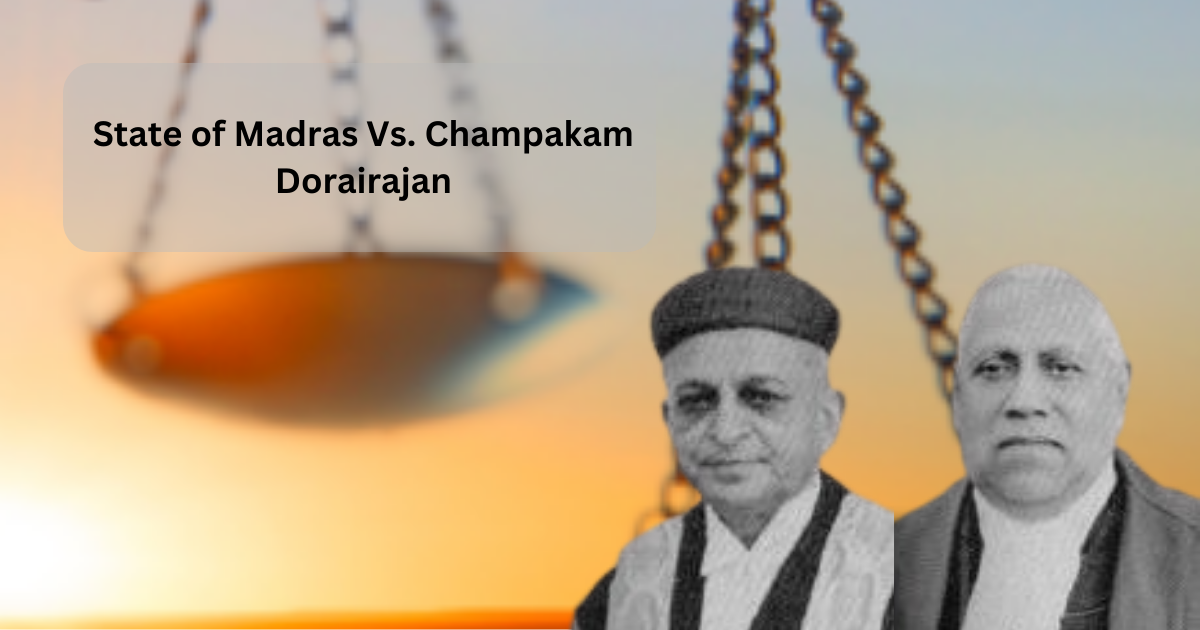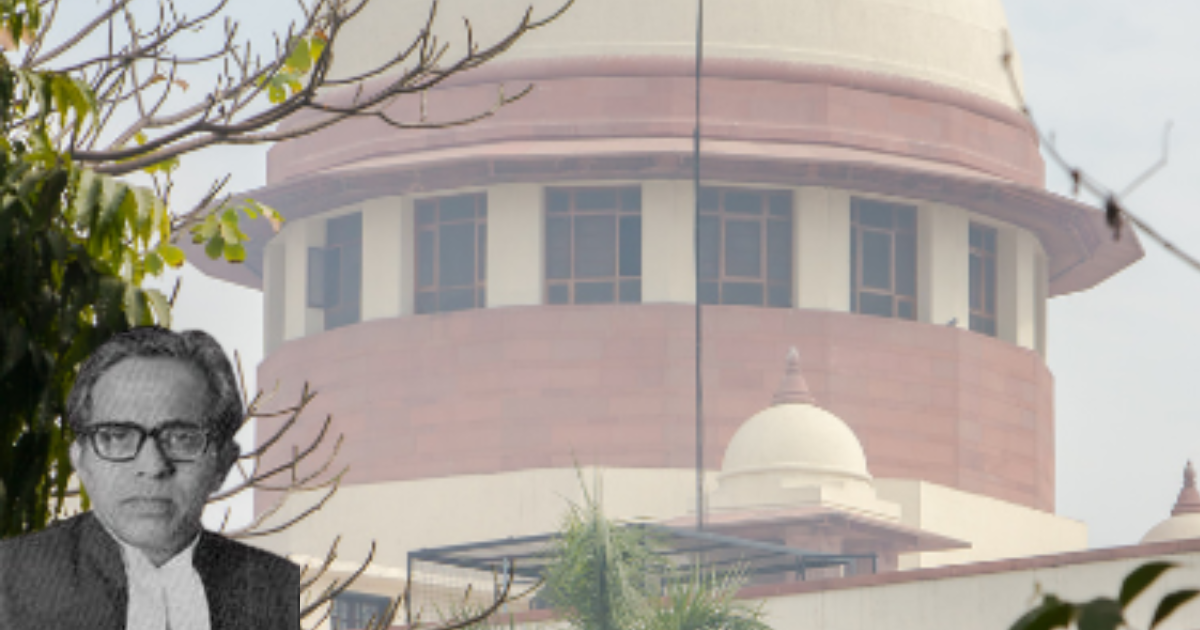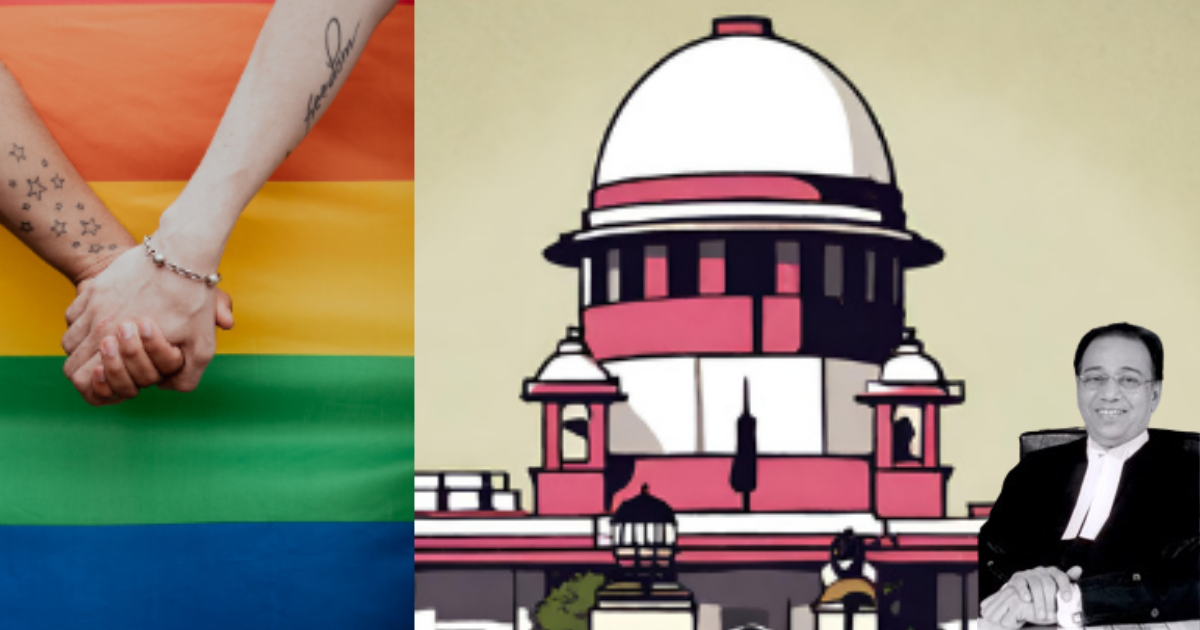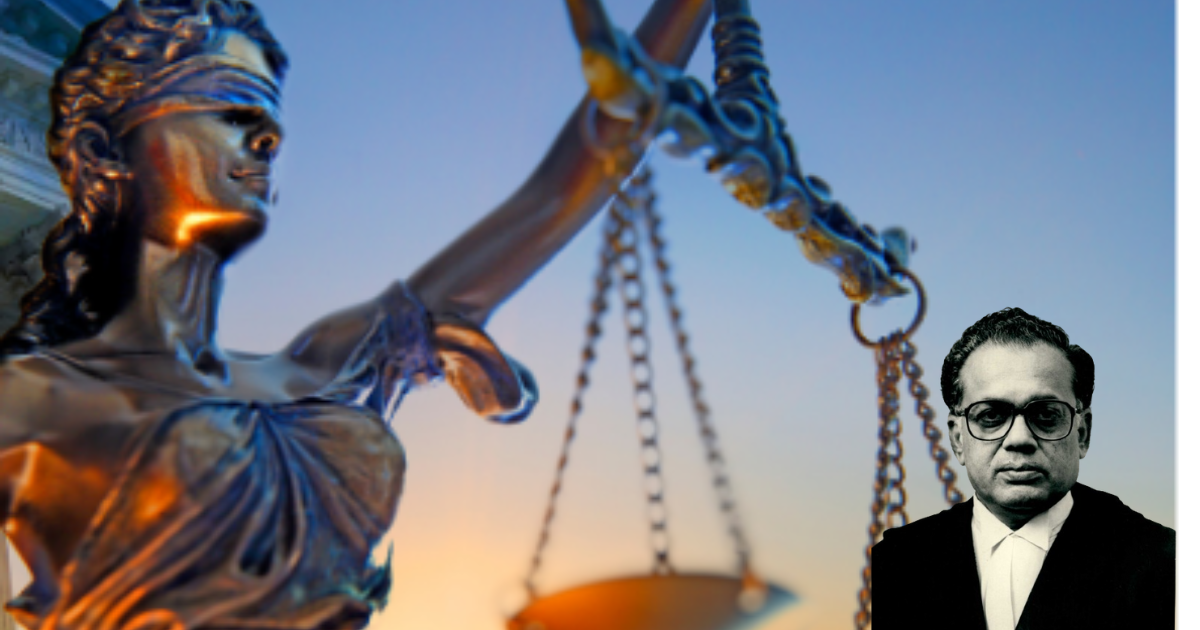In the riveting legal narrative of State of Madras v. Champakam Dorairajan (1951), a pivotal chapter unfolds in the constitutional history of India, reshaping the contours of reservation policies and the principle of equality. The protagonist, Champakam Dorairajan, ventures into the legal arena, challenging the reservation criteria for government jobs in the State of Madras, setting the stage for a landmark Supreme Court judgment that influences the trajectory of affirmative action in India.
The saga commences with Champakam Dorairajan, a formidable crusader for equality, petitioning the Madras High Court against the state’s reservation policy. The government, under the Communal Government Order of 1927, allocated seats in educational institutions and public services based on communal considerations, leading to discontent and legal challenges.
Champakam, represented by a legal team led by the illustrious N. C. Raghavachariar, mounts a constitutional challenge, contending that the reservation policy violated the principle of equality under Article 15(1) of the Indian Constitution. The crux of the matter lies in the assertion that merit and individual competence should be the sole criteria for government employment, free from any consideration of caste or religion.
The legal analysis in State of Madras v. Champakam Dorairajan delves into the constitutional tapestry woven by the framers of the Constitution. The Supreme Court, led by Chief Justice Harilal Kania, grapples with the intricate balance between ensuring social justice through affirmative action and upholding the cherished principle of equality.
In a momentous judgment, the Supreme Court rules in favor of Champakam Dorairajan, striking down the Communal Government Order of 1927 as unconstitutional. The Court, in its wisdom, emphasizes the significance of individual merit as the sole criterion for public employment, deeming the communal reservation policy violative of the equality clause in Article 15(1).
The aftermath of the judgment reverberates through the constitutional landscape. The ruling sets a precedent that underscores the constitutional imperative of treating all citizens equally without discrimination based on caste, creed, or religion. The judgment also influences subsequent constitutional amendments, leading to the insertion of Article 15(4) and Article 16(4), which provide for protective discrimination in favor of socially and educationally backward classes.
State of Madras v. Champakam Dorairajan becomes a cornerstone for future debates on affirmative action and reservation policies in India. The legal legacy of this case endures as a touchstone for constitutional scholars and policymakers navigating the delicate intersection of meritocracy, social justice, and equality.
It is argued that the petitioners are not denied admission only because they are Brahmins but for a 533 variety of reasons, e.g., (a) they are Brahmins, (b) Brahmins have an allotment of only two seats out of 14 and (c) the two seats have already been filled up by more meritorious Brahmin candidates. This may be true so far as these two seats reserved for the Brahmins are concerned but this line of argument can have no force when we come to consider the seats reserved for candidates of other communities, for, so far as those seats are concerned, the petitioners are denied admission into any of them not on any ground other than the sole ground of their being Brahmins and not being members of the community lot whom those reservations have been made. The classification in the Communal G.O. proceeds on the basis of religion, race and caste. In our view, the classification made in the Communal G.O. is opposed to the Constitution and constitutes a clear violation of the fundamental rights guaranteed to the citizen under article 29(2). In this view of the matter, we do not find it necessary to consider the effect of articles 14 or 15 on the specific articles discussed above. For the reasons stated above, we are of opinion that the Communal G.O. being inconsistent with the provisions of article 29 (2) in Part III of the Constitution is void under article 13. The result, therefore, is that these appeals stand dismissed with costs. Appeals dismissed.
Citation: 1951 AIR 226 1951 SCR 525
Case Title: THE STATE OF MADRAS Vs. SRIMATHI CHAMPAKAM DORAIRAJANandTHE STATE OF MADRASv.C.R. SR



